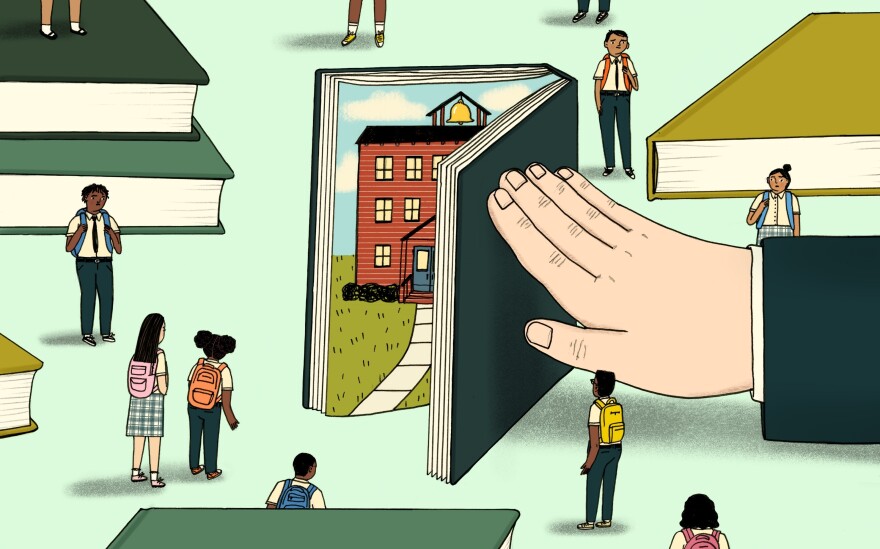A student-led group with roots in Unit 5 schools is hoping to speed up the diversification of social studies, history and English classes in Bloomington-Normal.
Aditi Sharma founded the Inclusive Education Coalition (IEC) last year when she was a senior at Normal Community High School.
The group's mission has little to do with COVID-19, but Sharma said a protest related to pandemic protocols gave her the idea of starting what she calls her own "movement." At a school board meeting before the start of the 2021-22 year, Sharma said she was among a group of students, staff and families who walked out of the meeting to protest a return to in-person learning.
"That demonstration kind of just inspired me to take action," said Sharma, now a freshman at the University of Illinois Urbana-Champaign. "I really resonate with the idea that education can help fix a lot of the issues that they have. (It's) the first step, I think, in creating a better, more empathetic world, so that's kind of what prompted me to start the organization."
Although COVID restrictions limited what the group could do in-person, there are 26 students still active in the group about a year later.
Member and NCHS junior Lilly Mcclelland said the current plan is to raise money for books that teachers can include in their classroom libraries, and putting together training for teachers interested in broadening the lessons they teach.
"A lot of it is aiming to get teaching materials or speakers and training sessions for the teachers themselves," she said. "Making some of these materials required would be our main goal."
Mccleland said IEC feels it has to take on the work because efforts at a state level haven't been as effective as lawmakers intended. In 2019, Illinois legislators passed a bill that requires all public schools to include the "contributions" of LGBTQIA+ people in history classes.
"Sure, having the bill is great because light is finally being shown on the LGBTQ+ community, but it’s still not enough," Mccleland said. "The representation just isn’t there even though it’s so necessary. It gets to a point where I feel like even teachers need to become more educated on topics like this so they can feel comfortable teaching them. Society is so overwhelmingly heteronormative that even bills like this barely do anything, which is why we must keep pushing to include the LGBTQ+ community even more.”
This year, Gov. JB Pritzker signed another education reform bill that requires history courses to include a unit on Asian-American contributions to state and U.S. history classes. What happens as a result of that bill remains to be seen, since that requirement doesn't take affect until the 2022-23 school year.
For her part, Sharma feels optimistic, buoyed by the knowledge that her group continues its work despite her having graduated.
"It feels wonderful... and it just feels so good to know that there are people out there who want to keep doing this work and keep it going," she said.
Mccleland added that she believes raising the issue of diversification — as many times as is necessary until substantive change is realized — is one of the most important functions the student group can perform.
"Awareness really just is the most crucial part about our work," she said. "Because people can form their opinions — they can think whatever they want, as long as they are aware of what's going on, what's gone on. Then they are able to form the valid opinions. That's the most important thing, I think."


